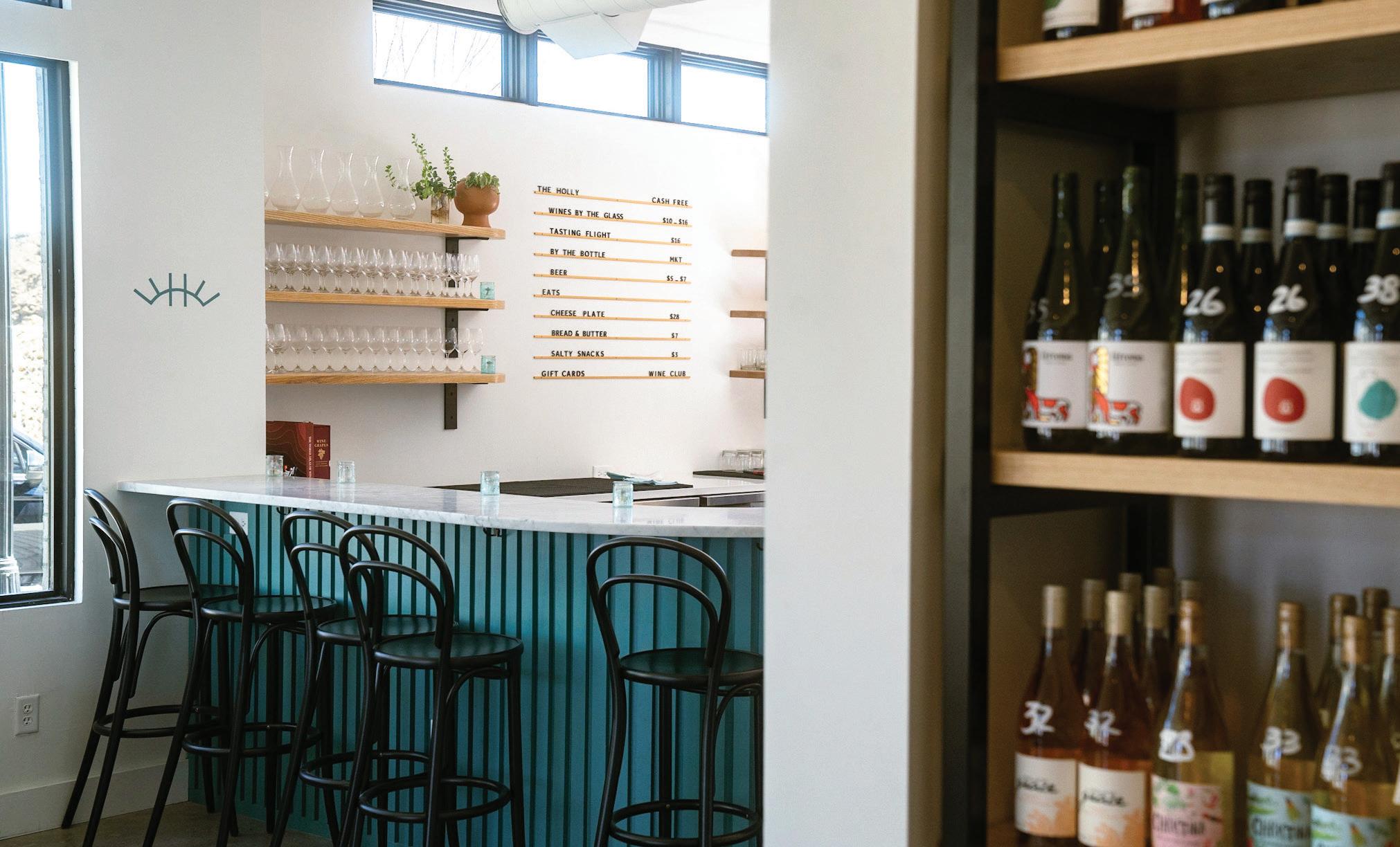
4 minute read
THE HOLLY
from OTK Issue 07
by One To Know
A Storyteller’s Wine Bar
One Local’s Fresh Approach
Advertisement
By Jocelyn Tatum Photos by Connor Fields
Apublisher, a managing editor and an executive editor walk into a local wine bar. One likes white wine, one likes red wine, and one doesn’t imbibe. The Holly Natural Wine Bar’s manager, Daniela Arboleda, says no problem, she has something to offer everyone and even a story to go with each glass.
Daniela first asks if we have been there before. Some of us haven’t, so she shares The Holly’s fresh approach to experiencing wine. First, they sell and pour wines that were made the way wine was thousands of years ago — all organic, small batch, no additives or preservatives, crushed by human hands and feet.
If you can’t travel, you can travel through a bottle of wine.”
— LIZ MEARS
She points to the flight of red wine on the table to try. This one is Martha. This one is Gaby. These are nicknames Daniela has come up with for the wines based on the name either on the bottle or from the maker, like female winemaker Martha Stoumen or a merlot from the Chateaux Gaby in France.
This type of wine makes up only 5%-10% of the wine market in the world. The result is less predictable than over-commercialized wines, and they don’t necessarily taste better than the homogenous wines we are used to drinking. These are often manipulated with chemicals to keep the flavor predictable and consistent, which is safe for the expecting palate and disillusioned human need to control all external variables.
So, what’s the appeal? Founder and owner Liz Mears says it’s not for everyone, but for those who want to change things up or be surprised, there’s nothing boring about the wine experience she offers. “It’s like if you like to shop at a farmers market, farm-to-table experience; it’s wine with people behind it and not machines, corporations and investors,” she says.
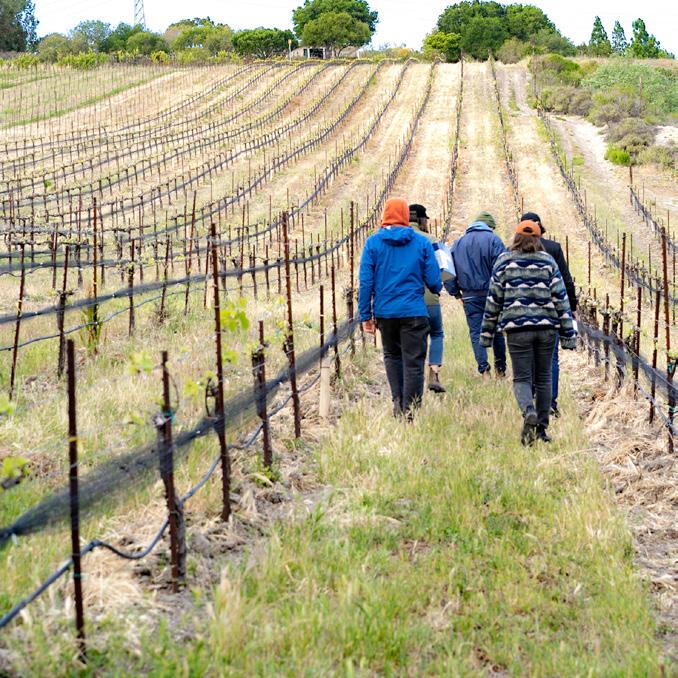
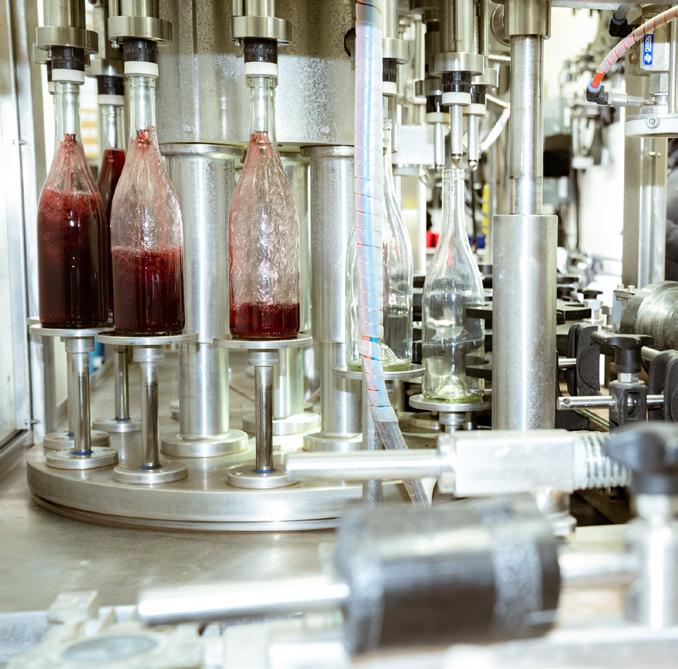
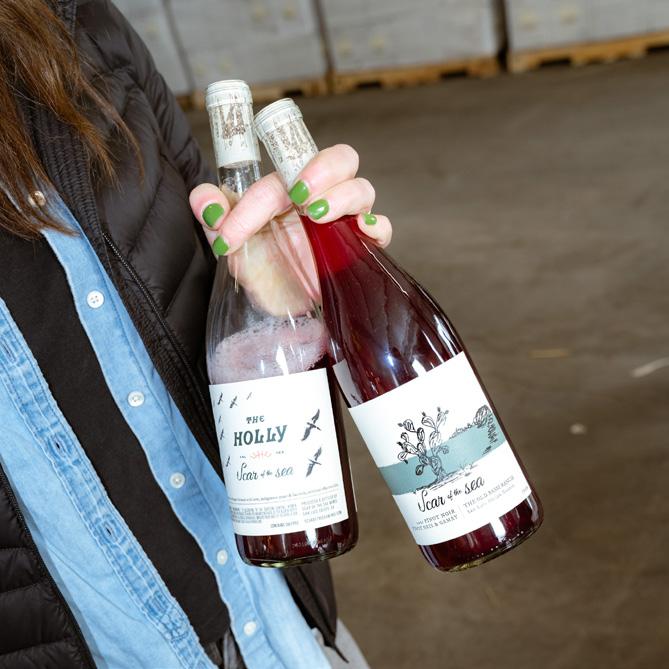
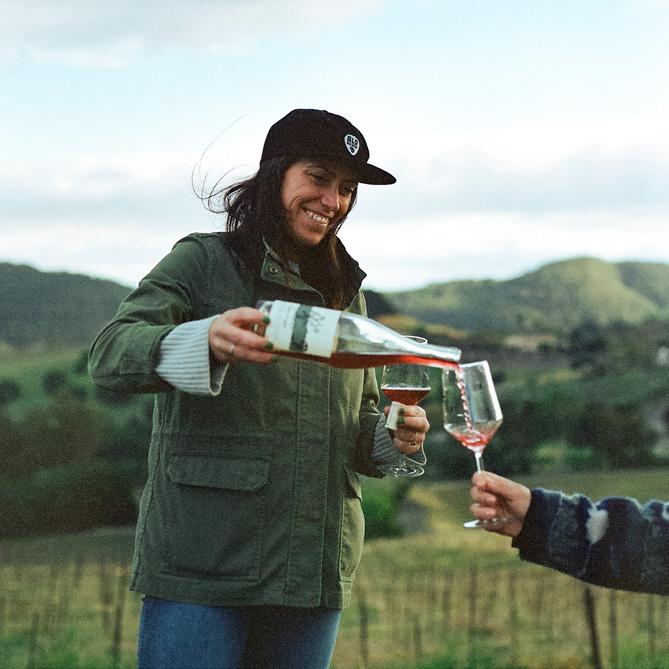
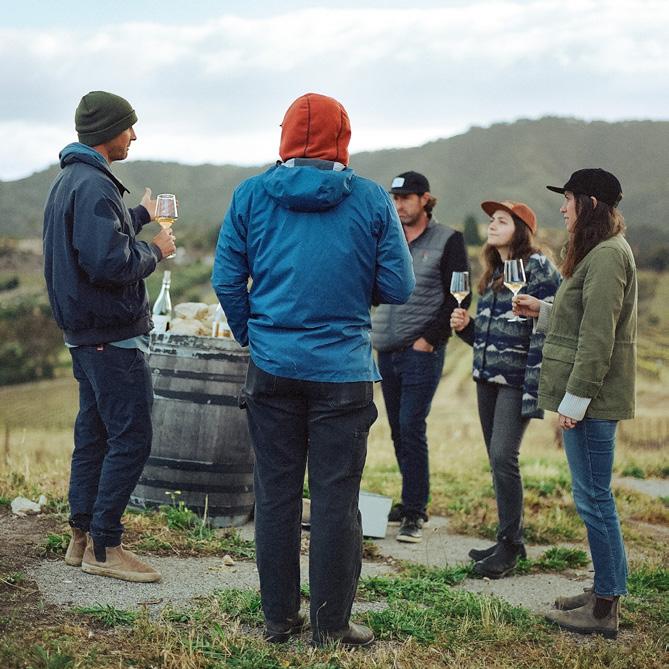
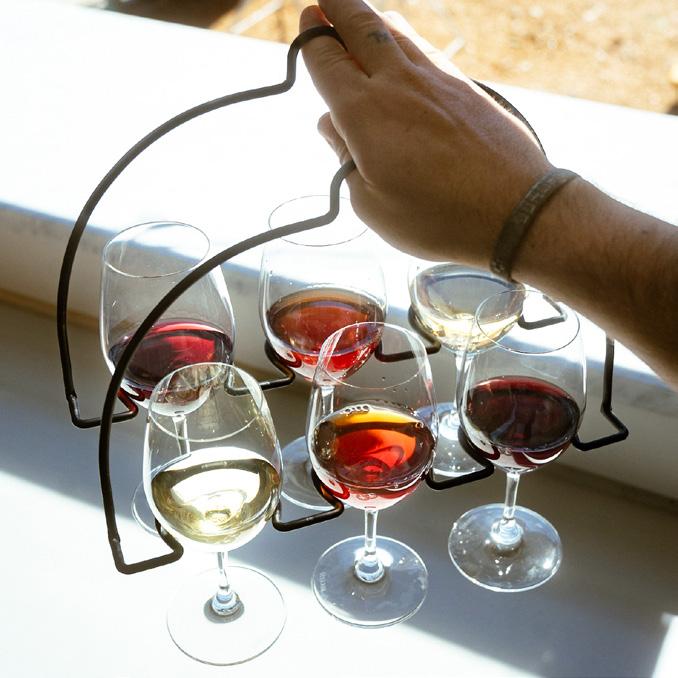
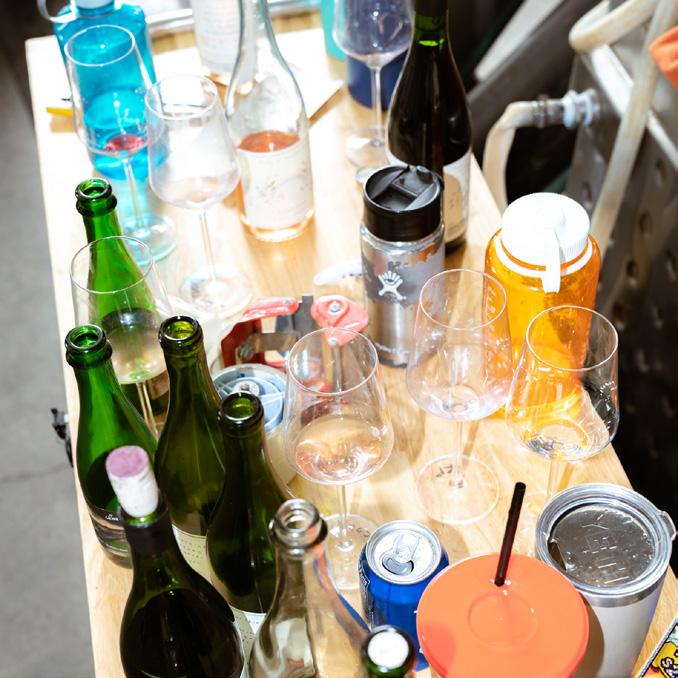
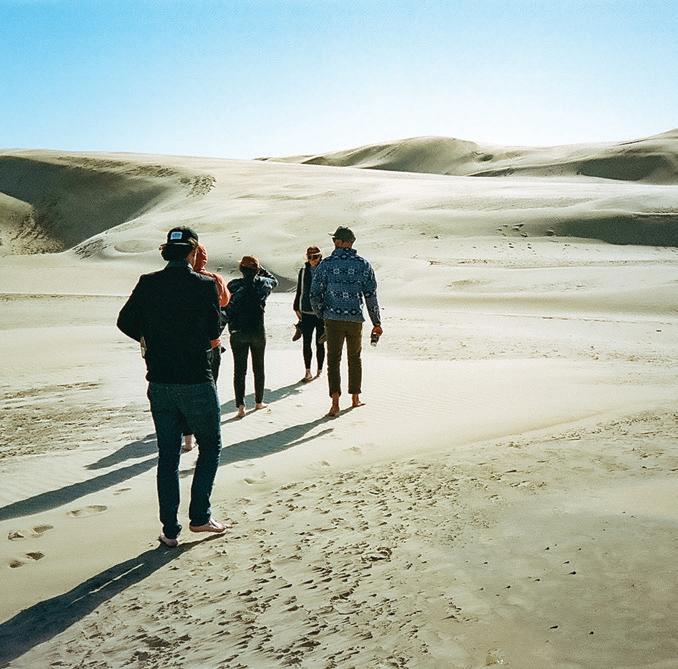
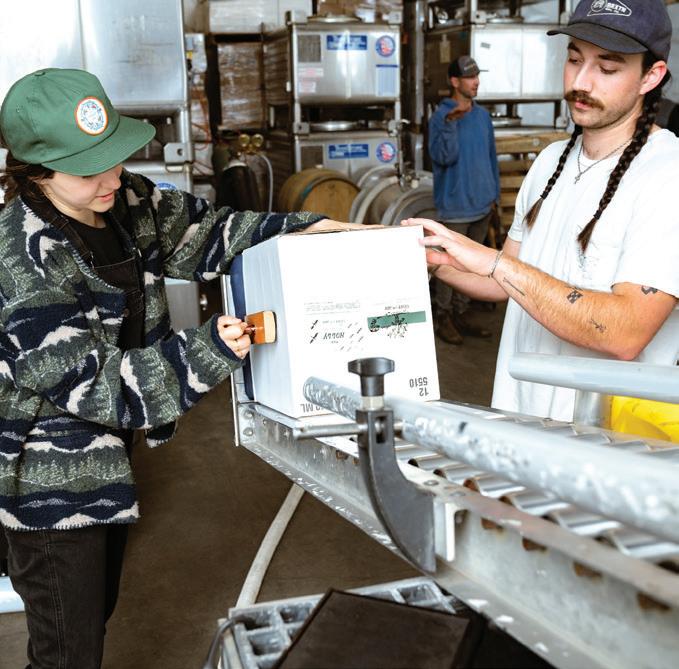
SCAN THE QR CODE to hear The Holly owner Liz Mears take you on a journey creating small batch wines in San Luis Obispo Coast of California.
They change the tasting menu every day. And even if a patron didn’t love the wine that day, they had a new experience and heard a new story, maybe one that they connected with. The story. It’s the stories behind the wines, the farmer and the families, the legacies, the toil, the overcoming, the resolve, the return to nature, from all over the world, bottled up and poured into a glass that drew Liz into this line of work in the first place.
She connected with the stories of winemakers who left the predictable and corporate life they had before, changed their career paths and went back to the land. “It is never too late to change your life and follow your passion. That is a motto I ascribe to, and these winemakers ascribe to. I spent so much time hearing that from wine makers that I was inspired, and it helped me in my journey,” Liz says.
Around these stories, scenes unfold at her wine bar. Community leaders, local influencers and creatives gather around the small tables. Some meet for the first time over a glass of orange wine, which Liz educates her guests is a white grape processed as a red wine would be. Huge windows, white walls, cool concrete floors and even cooler conversations keep the inside naturally lit. “It is not just drinking for drinking sake but drinking for community. It brings all sorts of discussions to the table. Wine is a nice and easy way to have that discussion,” Liz says.
A LITTLE ABOUT NATURAL WINES, ACCORDING TO LIZ MEARS:
Natural wines have native yeasts that are going to show different flavors, acidity and textures depending on mother nature that year — hot, cold or a rainy year. Conventional yeasts or additions of tartaric acids or tannins in conventional wines can be added to “correct” for these types of vintage conditions to maintain an established flavor profile [consistency]. Natural Wines and the philosophy of its makers is wine as an agricultural product showing the terroir, which is the complete and natural environment the wine is produced in, rather than a standardized alcoholic beverage. And of course, that philosophy goes back to farming. You can’t make a beautiful natural wine unless you are treating your soils with respect and promoting polyculture and organics that in turn allow for strong microbiology, bacteria and yeast populations that lead to spontaneous, healthy fermentations and eventually a lovely, wide range of flavor profiles.
